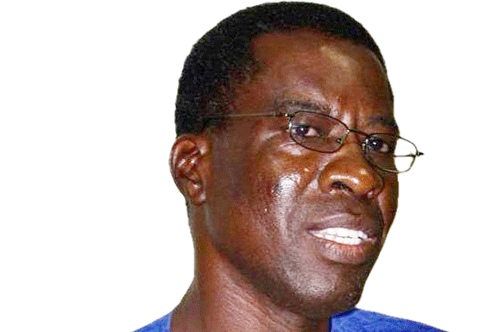Rihupisa Kandando
I am invoking the principle of natural justice, the audi alteram partem (the right to be heard) with respect to the article titled “Swanu relevance questioned” that appeared in the New Era newspaper on 27 September 2023.
I am made to understand that one of the transmission-belt, caravan of the Namibian militancy, the custodian and depository of the Namibian people’s aspirations issued a statement that was intended to provide insight on its reason for existence and continued relevance in the post-colonial dispensation. The New Era newspaper instead of appraising us as readers decided to share first the information with many in the political kiosks and mercenary-like corner shops masquerading as political commentators to pass a verdict on the futuristic prospect of Swanu in the Namibian body politic. The said article was a piece of cheap, sensational and spiteful journalism designed to disparage and hurt us as members and Swanu.
The conclusions that were arrived at by fellow academician, Rui is that Swanu is currently in the intensive care unit, lost its intellectual support base and the prospect of gaining a seat in the upcoming election is a remote possibility. Assuming the analyst is correct on the loss of intellectuals how does that prognosticative journalism translate into an imminent, ignominious demise of Swanu in disregard of dialectical materialism that postulates that where here is a minus there is always bound to be an addition?
On the admitted facts, I agree with my brother Rui that indeed after independence, Swanu lost its intellectual base as evidenced by the appointment of some cadres in the public service, others in key political government positions such as Dr Zed Ngavirue, director general of NPC, Dr Tunguru Huaraka (first Namibian ambassador to the UN), Nora Schimming-Chase, Adv. Vekuii Rukoro, Dr Fanuel Tjingaete (First Ombudsman), Charles Kauraisa (Rössing mine), others on account of dialectical materialism, recognising that politics is not static but dynamic Moses Katjiuongua, Godfrey Gaoseb (first PS of Finance), on account of plurality of political opinions such in the cases of late Moses Garoeb, Katuutire Kaura; others on account of loyalty to their bank accounts. Some of these sons and daughters of Namibia in the 1980s refused co-option to serve in colonial administration headed by then chairman of the Afrikaner Broederbond seconded to Namibia as an administrator, General Gerrit Viljoen on grounds of principle but decided to join the new black administration. In rebuttal, Swanu relevance must be seen against the philosophical and ideological position to which it subscribes. The existence of homogeneous ideological society in Namibia characterised by the free market economy and the perception that there is no life without Kentucky Fried Chicken and TV, calls for an antidote which is Swanu; the public pain inflicted on our people as a result of private greediness, the end-result of which is corruption calls for the continued existence of Swanu; the slogan of “Give the Land Back to the People (“Patji Ngarikotoke”) which has now become a national anthem in the current political dispensation is as a result of Swanu’s continued existence and perseverance etc; the perpetuation of skewed income distribution as characterised by N$18 000 versus N$2.8 million per annum for workers and ruling elite respectively.
Some colleagues live in glass houses and do not know the battlefields and impediments to which some political formations are subjected. In fact, they would never know how it feels like to give birth, only women know what that bittersweet pain is like, and their attentions are therefore drawn to the earlier IPPR research done by Prof Bill Lindeke on tolerance and maturity of democracy in Namibia. Namibian situation, as a matter of necessity, must accommodate intellectual integrity and not pander to intellectual arrogance more so where an African uses his intellectual capabilities to confuse our situation and think that he or she enjoys a monopoly on analysis and appropriate to themselves the role of patent holders of issuing licences of legitimacy and relevance of political parties. As a matter of fact, when AG Gerrit Viljoen issued Proclamation on Second Tier Representative Authorities in April 1980, the stage for neo-colonial political dispensation was set to further divide our people based on their ethnic origin. This is the context in which the name of one of our political formations (DTA) came into the equation since racist Pretoria used to rule Namibia by proxy through DTA.
Mr Ngaringombe – secretary general of PDM – must not be irked with discomfort by the historical fact when reference is made to the DTA as having partly contributed to the disunity and polarisation of our society. My brother, charity begins at home and double-dealing can be no lifetime profession, cannot always have his bread buttered on both sides, approbate and reprobate at the same time.
* Dr Rihupisa Kandando is a member of the South West African National Union party.


